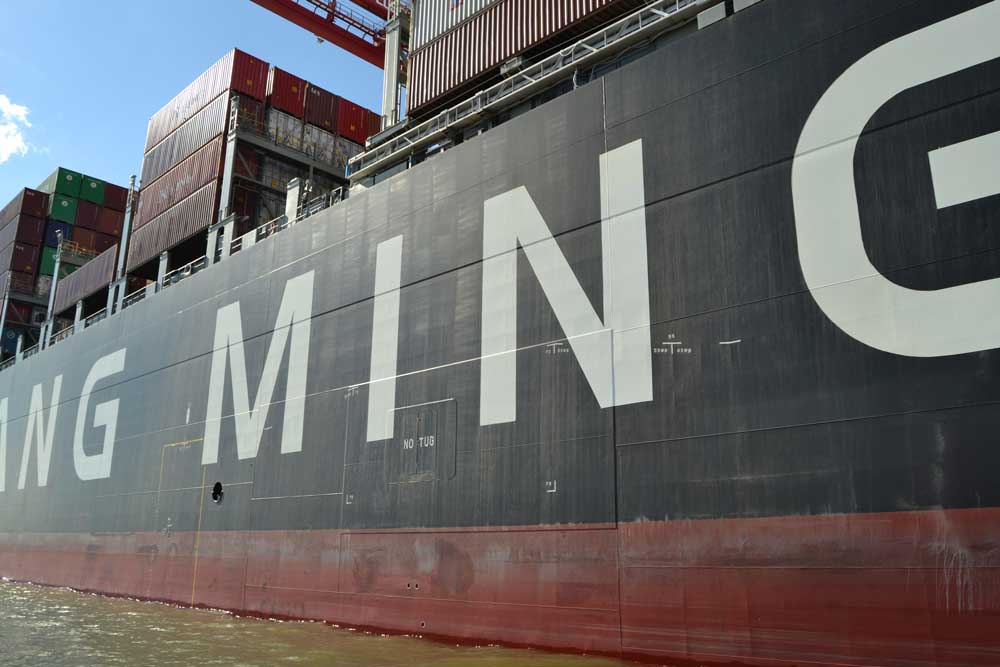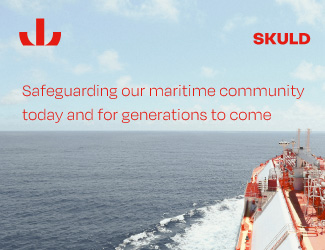Shell Marine, as lubrication part of a large oil and gas company, considers itself well positioned for the future, especially[ds_preview] in view of the new regulations around the IMO’s »Sulphur Cap 2020«. The choice of lubrication obviously depends on the fuel or the technology used, be it a scrubber, LNG or low and ultra low sulphur fuel oil. Shell believes, a significant part of the market will shift to fuels with less than 0.5% sulphur, where other cylinder oil formulations with a lower BN number is expected to deliver optimum performance. This will be a mixture of very low sulphur fuel oil (VLSFO) and distillate fuel. It is expected that 30% of the market could be using scrubbers by 2025-2030, which is likely to see demand recover for higher BN lubricants, although their use may then drop off if new environmental legislation restricts use of scrubbers. However, LNG technology is taken care of, too. »We are as much a gas company as we are an oil company. So we really believe in the future of LNG and therefore we have lubricants to serve LNG driven vessels«, Joris van Brussel, General Manager of Shell Marine, tells HANSA.
A major focus is placed on joint development work with engine manufacturers with tests at the Marine & Power Innovation Centre (MPIC) in Hamburg. There, Shell has a number of engines and own testing is done, before products are going into field trials. With regard to the Sulphur Cap, there is quite a lot of need for testing – even although there are not so many market-ready low sulphur fuel oils available, yet . Van Brussel thinks, on the product side, there is still insecurity: »Think about the crew on board, they have to handle these new products. They might know the engine very well, but do they know the products in the engine? Fuel quality is probably going to vary, because people are also blending things.«
»We intend to partner with shipowners«
With the group’s own »Miles« programme, Shell intends to do analysis and to do it much quicker. »We intend to partner not so much with the bunker suppliers but with shipowners. We want to ensure that they are able to have something that is going to work reliably for the crew«, the general manager adds.
One aspect is the on-going trend towards more automation on board. Shell is working on some projects in this field. »We are using algorithms and machine learning. Still the crew and the shipowner need to be able to operate the ship, but they need the right information for that. In this respect, we do a lot of sensor testing with engine manufacturers«, van Brussel says.
The post-2020 scenario poses different challenges for slow speed cylinder oils to the ones OEMs have been focusing on over recent years, where BN80-BN100 oils have been needed to defend newer engines against cold corrosion under part-load conditions burning higher sulphur fuels. 0.5% fuel use will drive demand towards lower BN oils. »The two-stroke product portfolio for 2020 is largely in place, but we expect that there will be a requirement for significant volumes of higher BN cylinder oils to be replaced by BN40 or BN70 grades«, Shell stated already. Latest work at the MPIC is focusing on the final tests of a new 40BN cylinder oil for two stroke engines that is already undergoing field trials and is expected to be available in the market in the early part of 2019.
Being asked whether the challenges for the whole industry and the need for intensive and costly research might lead to a consolidation on the lubrication market, too, van Brussel says: »The industry is full of players. In the future, we will see much more different fuels. We have the capability for the whole range of products. But that requires a lot of capacity and investment in R&D. I don’t know to what extend everybody is capable of doing that.«














